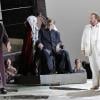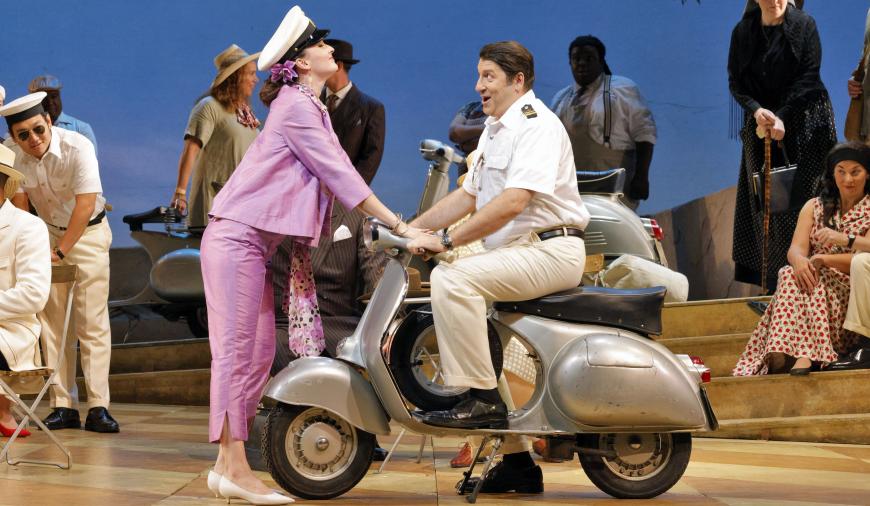
Did huckster Dr. Dulcamara secretly dispense some of his high-proof love potion to the San Francisco Opera audience? How else to explain the huge, virtually inebriated outpouring of love and affection at the close of the Nov. 19 opening performance of Gaetano Donizetti’s long-lived comic opera L’elisir d’amore (The elixir of love)?
There is, of course, a far more plausible explanation. Director Daniel Slater and designer Robert Innes Hopkins’s continually inventive production (originally created for England’s Opera North), Ramón Tebar’s consistently buoyant and singer-friendly conducting, the cast’s superb singing, and Donizetti’s irresistible lyricism transcended Felice Romani’s cliched and formulaic libretto to delight us and touch our hearts. The production’s sweetness, naivete, and joy were impossible to resist.
Slater and Hopkins convincingly updated the opera to Italy’s La dolce vita period of the 1950s, moving the show away from 1830s peasant quaintness and to the Italian Riviera. Equally effective was Slater’s transformation of idiomatic stage-bound asides into confessions to the audience. Several surprising extramusical interjections hit the mark — no spoilers here — and, together with some winning shtick, deepened the impact of words and music.
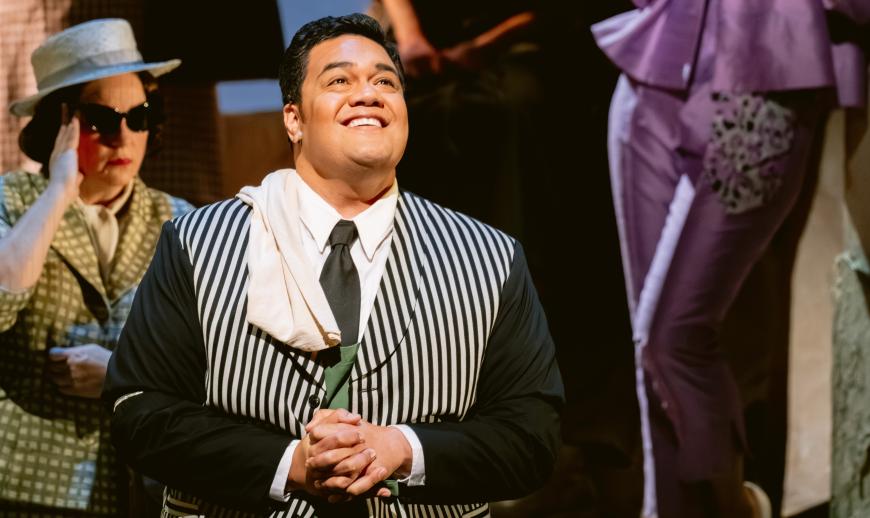
The star of the production was tenor Pene Pati as the hopelessly smitten, afraid-to-make-the-move lover Nemorino, who in this staging is an unsophisticated waiter at Hotel Adina. So much of Pati’s performance was a joy that the transformation to earnestness that came with his character’s great Act 2 aria, “Una furtiva lagrima” (A furtive tear), was all the more moving.
That aria showed Pati at his bel canto best, frequently altering dynamics as he crescendoed from soft to loud or tapered down to a sliver of sweet sound. Most singers perform the aria straight. Pati, however, sang it as someone so smitten — so inebriated with love and alcohol — that he grew over-effusive while maintaining virtually flawless purity of line. Add in his winning smile and a palpable humility that seemed more than skin deep, and he had the audience in the palm of his hand.
Making her SF Opera and role debuts, Vienna-born Slávka Zámečniková was a mostly winning Adina, here the wealthy and well-dressed owner of a namesake hotel. It’s a challenging role that until the end of the second and final act doesn’t allow a lyric coloratura soprano to show off her technique or revel in her high notes.
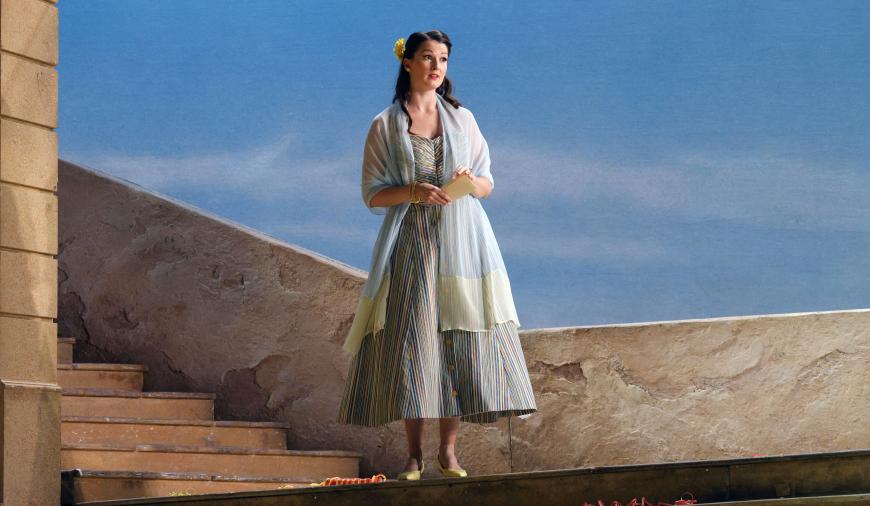
But when the moment finally came, Zámečniková excelled. Two of her top notes were a mite flat, but the big one at the end was as spot on as it was sweet. If some exponents of the role have more successfully integrated strength and vulnerability into their sound, Zámečniková compensated with stage presence and acting. She also impressed with her ability to soften higher up in her range to produce sweet, resonant head tones without edge.
As Nemorino’s rival for Adina’s affections, baritone David Bizic made for a suitably cocky Sergeant Belcore. Even though his voice lacked strength and resonance lower in the range, it blossomed handsomely higher up to produce some truly beautiful sound.
Renato Girolami, as Dulcamara, shone with the strength of his instrument and winning ability to lay it on thick. While not quite the equal of the famed buffa baritones of old in his ability to exaggerate syllable after syllable and line after line, he was a near-constant delight.
In the supporting role of Giannetta, Adler Fellow Arianna Rodriguez delighted with her smile and lovely soprano sound. The voice wanted for strength lower in the range but shone on the high end. In her acting, Rodriguez’s Giannetta also provided some welcome commentary on Adina’s occasionally demeaning commands. As Dulcamara’s mate, Randy Lee was a delight.
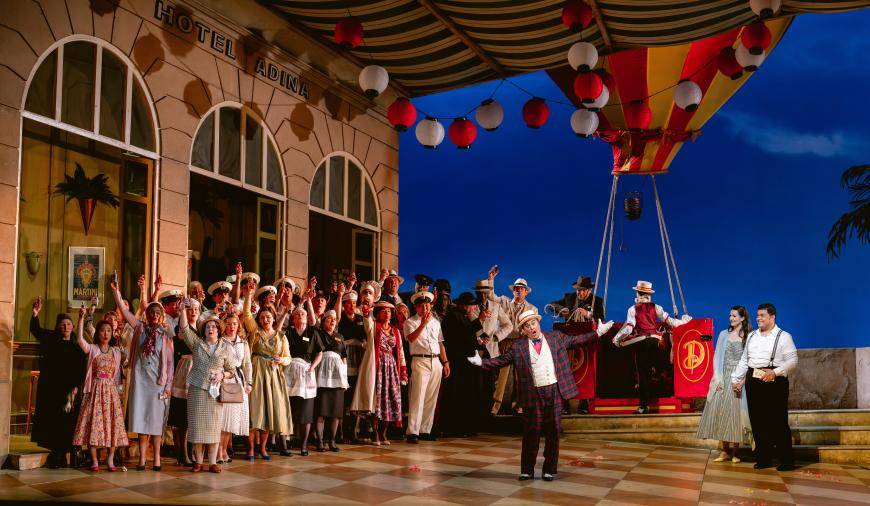
I can’t say enough about Simon Mills’s vibrant lighting, complete with some surprise effects. SF Opera Chorus Director John Keene and associate director/choreographer Tim Claydon also deserve plaudits. Everyone in the chorus seemed alive to the moment and moved as wonderfully as they sang; never did anyone seem to be singing without motivation.
Yes, this is an old-fashioned comedy, but I urge any opera lover who normally dismisses L’elisir as irrelevant to see this production. Not only is its charm timeless and its seemingly endless fount of melodies irresistible, but the sum total of its singing is marvelous. Performances run through Dec. 9.




